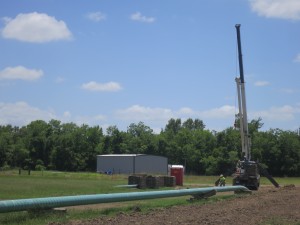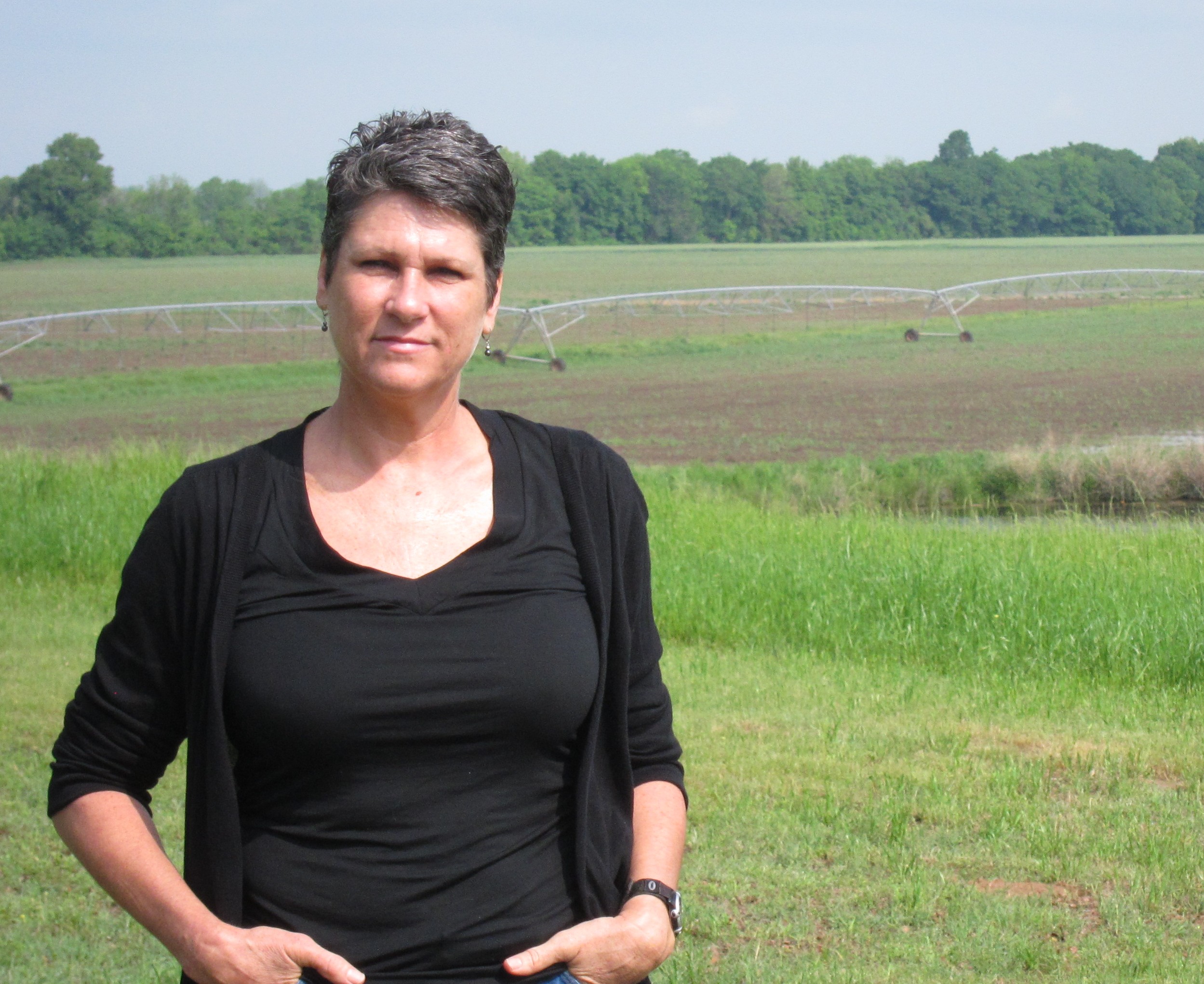As Drilling Expands, So Do Fights Over Land Rights

Photo by Mose Bochele.
William Christian is a lawyer with Graves Dougherty Hearon Moody. Part of his practice involves representing landowners in condemnation cases.
Texas is a funny place when it comes to property rights.
State Supreme Court rulings have said pipeline companies are not doing enough to prove they can take private land. Meanwhile, an unprecedented boom in oil and gas drilling means those same companies are scrambling to put more pipeline in the ground. The result has been an explosion in litigation over how and when companies are able to take private land.
But while Texas may be ground zero in the struggle over eminent domain, industry representatives and legal experts are seeing more Texas-style battles in other parts of the country as drilling and pipeline building expand.
A study by the Interstate Natural Gas Association of America, or INGAA, estimates the U.S. will need 2000 miles of interstate natural gas pipeline per year. That will cost roughly $8 billion annually. And remember, that’s just natural gas. Oil and other fuels will need their own infrastructure.
That means a lot of pipeline going through a lot of private land, and that will likely mean even more lawsuits.
“it’s become a real boom industry for the legal profession,” William Christian, a lawyer with Austin-based lawyer who represents land owners told StateImpact Texas. “Pipelines are going up everywhere and that leads to a lot of condemnation cases.”
Landowners have lawyered up in Pennsylvania, Oklahoma, and Ohio to fight new pipelines. Lawmakers in Colorado attempted to change that state’s laws to give pipelines’ greater power to take land. That measure proved so unpopular it was quickly withdrawn.
What impact the legal fights have on industry depends on who you ask.
Don Santa, the head of INGA, told StateImpact Texas that pipeline providers generally figure litigation into their bottom line, but that doesn’t mean it’s good for business.
“It takes resources it is time consuming but again it has always been part of the process,” said Santa.
“Remember this is not a one time deal,” he added. “Once the pipeline is in place, landowners are our neighbors in perpetuity terms of the existence of the pipeline there. So we have every reason to want to get off on the right foot.”
So why do the lawsuits happen?

Crews bury the Crosstex NGL pipeline in a farm field in East Texas. The pipeline has been the cause of ongoing litigation.
Industry reps say the legal battles are increasing with environmental activism. If someone opposes fossil fuels or fracking, they may challenge a pipeline carrying oil or gas (see the Keystone XL Pipeline).
“We are in a period of our state’s history with the oil and gas industry where we have the ability to change the nation’s energy security picture with domestic production. None of those things work unless they are connected with pipelines,” James Mann with the Texas Pipeline Association told StateImpact Texas.
“Now I’m not the only one of course has figured that out,” Mann added. “Folks who don’t like the idea of oil and gas exploration, I believe, have also figured out that pipelines are one of the keys to that process.”
But lawyer William Christian said most lawsuits revolve around money, not environmental concerns. He said it could be that pipeline companies have changed their behavior: offering less compensation and seeming more eager to take landowners to court in the rush to build.
“It seems to be a trend that a lot of landowners who’ve owned land for a long time and negotiated these easements over a long period of time in recent years have felt like the pipeline companies have gotten more aggressive,” Christian said.
U.S. oil production has increased 30 percent in the last five years. Natural gas is booming. As long as that trend continues, Christian says he sees no end to the disputes.
